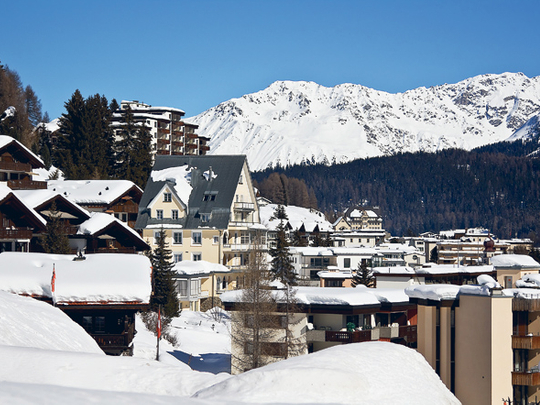
Davos, Switzerland: Responsible banks and aid for Haiti — not invincible billionaires, high-charged diplomacy or rock stars —are the watchwords at this year's World Economic Forum at Davos.
This rarefied Swiss resort will still host its share of bankers rich on post-meltdown bonuses and perhaps less of the humility that marked last year's gathering of many of the world's rich and powerful, then struggling through government bailouts and questioning their future.
Yet participants and organisers of this week's five-day forum, opening tomorrow with more than 2,500 leading figures in business and politics on deck, suggest Davos is marking its 40th birthday by adapting to a more sober and dispersed modern economy, one where Beijing weighs increasingly on the market balance, and where poverty and public outrage demand the attention of the world's moneymakers.
"The euphoria about globalisation that marked Davos for years has in a sense been undermined by the global crisis," Joseph Stiglitz, a Nobel Prize-winning economist and frequent participant at Davos, said, expressing hope that "going forward, there can be a more serious attempt to try to get a more balanced view, not only at the benefits but at some of the risks."
While President Barack Obama's administration will be only modestly represented at this year's forum, his plan to clamp down on the size and activity of banks will be on many chief bankers' minds.
Basis
Rising global unemployment and sluggish recovery from recession form the backdrop for the forum, which will host more than 30 presidents and prime ministers from January 27-31.
The event, titled Improve the State of the World: Rethink, Redesign, Rebuild, will be opened by French President Nicolas Sarkozy — a man who once hungered for freer markets for his country but now espouses a more state-supervised kind of "moral capitalism."
The forum, which has traditionally championed market-driven solutions, finds itself in a challenging pose.
This year's agenda looks at reforming banks and barriers to world trade as well as cybercrime, corruption and how businesses can respond to climate change.
The slim US presence suggests Davos is not a high priority for Obama's administration, after years of top-level participation under George W. Bush. Lawrence Summers, director of the National Econ-omic Council, is the highest US official slated to appear, leaving Obama at home amid a political battle over health care reform and unemployment over 10 per cent, and set to give the US State of the Union address tomorrow.
Former President Bill Clinton's appearance will focus not on US economic policy but on Haiti. As the UN special envoy to Haiti, he will encourage Davos participants to give some thought, and cash, to helping rebuild the Western Hemisphere's poorest nation after the earthquake that killed as many as 200,000 earlier this month, one of history's deadliest.












